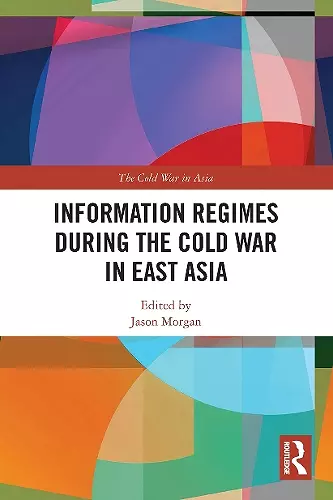Information Regimes During the Cold War in East Asia
Format:Paperback
Publisher:Taylor & Francis Ltd
Published:29th Apr '22
Currently unavailable, and unfortunately no date known when it will be back
This paperback is available in another edition too:
- Hardback£145.00(9780367499433)

Morgan and his contributors develop the concept of the Information Regime as a way to understand the use, abuse, and control of information in East Asia during the Cold War period.
During the Cold War, war itself was changing, as was statecraft. Information emerged as the most valuable commodity, becoming the key component of societies across the globe. This was especially true in East Asia, where the military alliances forged in the wake of World War II were put to the most severe of tests. These tests came in the form of adversarial relations between the United States and the Soviet Union, as well as pressures within their alliances, which eventually caused the People’s Republic of China to break with from Moscow, while Japan for a time during the 1950s and 1660s seemed poised to move away from Washington. More important than military might, or economic influence, was the creation of "information regimes" – swathes of territory where a paradigm, ideology, or political arrangement were obtained. Information regimes are not necessarily state-centric and many of the contributors to this book focus on examples which were not so. Such a focus allows us to see that the East Asian Cold War was not really "cold" at all, but was the epicentre of an active, contentious birth of information as the defining element of human interaction.
This book is a valuable resource for historians of East Asia and of developments in information management in the twentieth century.
ISBN: 9780367499440
Dimensions: unknown
Weight: 308g
206 pages